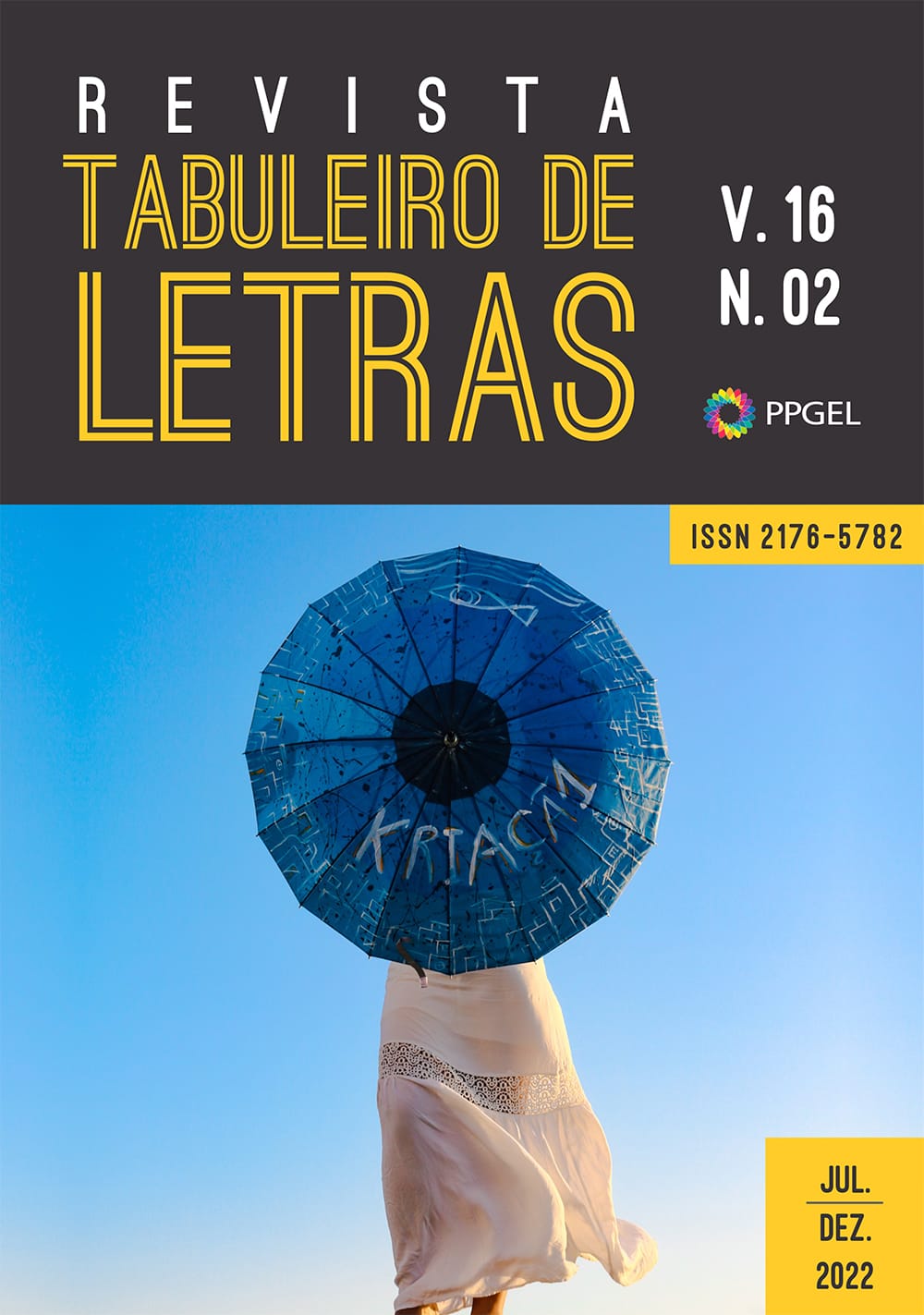(Des)Colonizar-se a si mesmo:
memória e identidades em Venenos de Deus, remédios do Diabo, de Mia Couto
DOI:
https://doi.org/10.35499/tl.v16i2.15230Resumo
O escritor moçambicano Mia Couto se destaca como representante da literatura africana de expressão lusófona identificada como “pós-colonial”, surgida depois da emancipação de países outrora colonizados por Portugal e que, na afirmação de sua identidade (mesmo usando a língua do colonizador), assume um discurso de discordância ou revisão da dominação cultural sofrida por séculos. Contudo, a ficção de Couto transcende a filiação a uma tendência de época, buscando a universalidade. Analisaremos no romance Venenos de Deus, Remédios do Diabo (2008) como a noção de identidade (pessoal, social, histórica) se articula à de memória coletiva na experiência dos principais personagens. Os problemas da “descolonização” sem horizontes são vivenciados por Bartolomeu Sozinho, o velho doente, saudoso dos tempos coloniais. Ele cultiva a memória de um suposto tempo de glória evocado na idealização de sua atividade de marinheiro no navio Infante dom Henrique. As dificuldades do presente o levam a legitimar o discurso do colonizador. Em sentido oposto, a estada do médico português Sidónio em Moçambique, na busca frustrada de um amor, resulta no seu rico envolvimento com o país africano, e aponta para a busca da construção possível de uma identidade a partir do confronto com o diferente.
Downloads
Referências
COUTO, Mia. Venenos de Deus, remédios do Diabo. São Paulo: Companhia das letras, 2008.
FERREIRA, Márcia Souto. Estratégias narrativas e identidades deslizantes em Venenos de Deus, remédios do diabo, de Mia Couto. Belo Horizonte: Dissertação (Mestrado) – Pontifícia Universidade Católica de Minas Gerais. Programa de Pós-Graduação em Letras. 2011.
HALBWACHS, M. A memória coletiva. São Paulo: Centauro, 2006.
HALL, Stuart. A identidade cultural na pós-modernidade. 11º. ed. Rio de Janeiro: DP&A, 2006.
HALL, Stuart. Da Diáspora: Identidades e mediações culturais. Belo Horizonte: UFMG, 2007.
KESSEL, Z. Memória e memória coletiva. Disponível em < www.memoriaeducacao.hpg.ig.com.br >. Acesso em 03/08/2015
ROSSI, Paolo. O passado, a memória, o esquecimento: seis ensaios da história das ideias. São Paulo: Unesp, 2010.
PARRACHO Bianca Basile e FORLI Cristina Arena. Venenos de Deus, Remédios do Diabo: A Solidão no Compasso da Pós-Independência de Moçambique in Revista Historiador Número 03. Ano 03. Dezembro de 2010 Disponível em: http://www.historialivre.com/revistahistoriador
Downloads
Publicado
Como Citar
Edição
Seção
Licença
Autor(es) conservam os direitos de autor e concedem à Revista o direito de primeira publicação, com o trabalho simultaneamente licenciado sob a Licença Creative Commons Attribution que permite a partilha do trabalho com reconhecimento da autoria e publicação inicial nesta Revista.

















